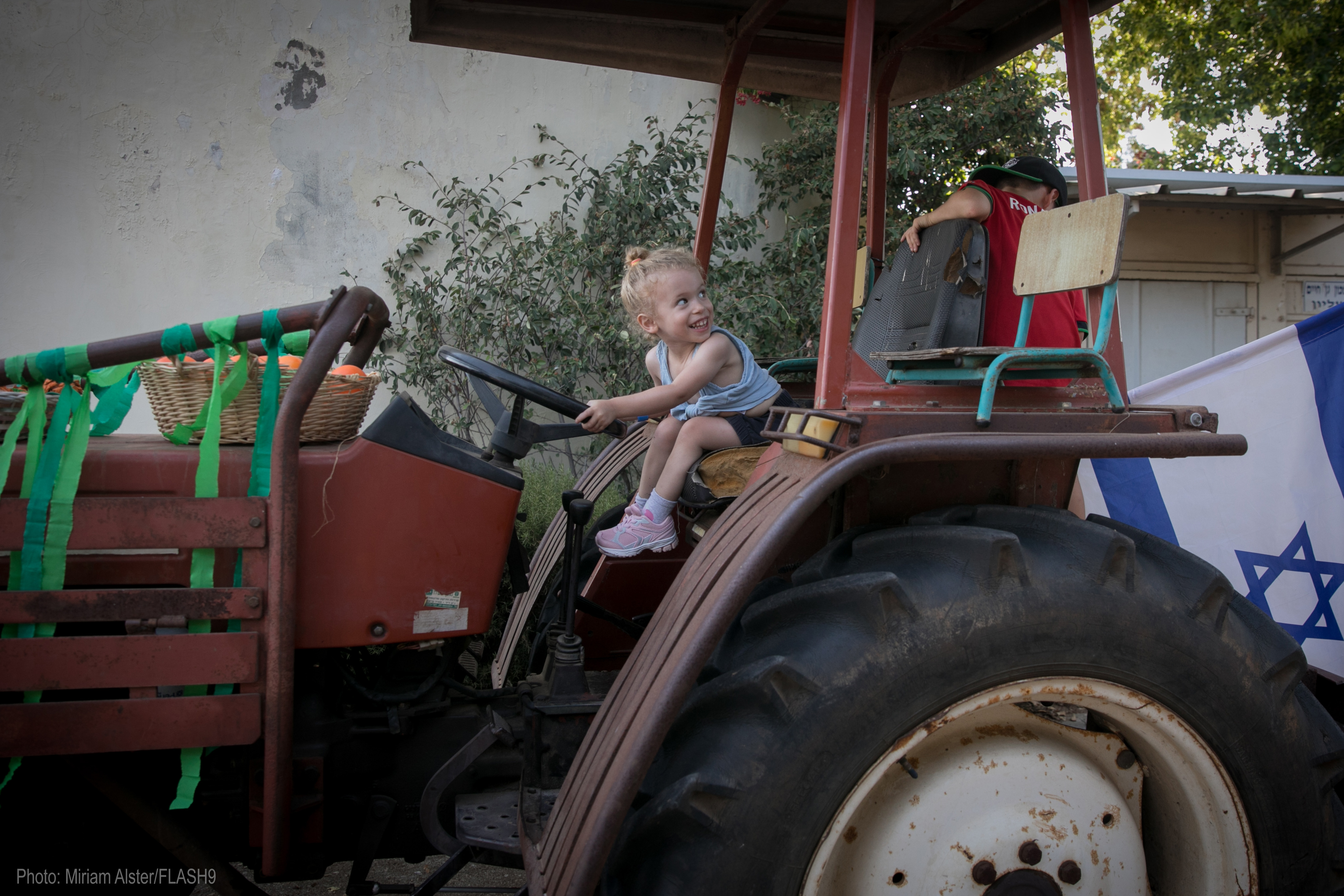Firstfruits: Giving God Our BestSample


Celebrating Bikkurim Today
When you have entered the land the LORD your God is giving you as an inheritance and have taken possession of it and settled in it, take some of the firstfruits of all that you produce from the soil of the land the LORD your God is giving you and put them in a basket. Then go to the place the LORD our God will choose as a dwelling for his Name. — DEUTERONOMY 26:1-2
“Baskets on our shoulders with crowns on our heads, from the edges of the land we come, we bring bikkurim… make way for us, because we have firstfruits with us, beat the drums and play the flute… ”
These are the English words to a popular Hebrew song taught to Jewish children around the world. It recalls the beautiful and joyful pilgrimage to Jerusalem where firstfruits were once offered in the days when the Temple stood. Today, all we have is a memory of what once was.
In many Jewish communities throughout the world, there is a concerted effort to keep that memory alive and to keep the practice of bringing the firstfruits connected to the holiday of Shavuot. We achieve this mainly through our children who often decorate baskets in school and place real or pretend fruit inside. In some synagogues, the children are invited to bring their “firstfruits” on Shavuot, where they then parade around with flower crowns on their heads and baskets on their shoulders, singing songs of praise. If real fruit is involved, some synagogues donate the produce to local soup kitchens.
Overall, however, the practice of bringing firstfruits on Shavuot has been lost to the Jewish people. Instead, the commemoration of receiving the Torah on Mt. Sinai has taken its place as the focus of the holiday—at least for now. On Shavuot today, it is common for people to stay up all night studying the Torah to demonstrate our joy at receiving God’s Word over 3,000 years ago. We also read from Scriptures that describe the revelation of God on Mt. Sinai and the giving of the Ten Commandments.
Interestingly, the 1967 Six-Day War that brought about the reunification of Jerusalem was won just days before the holiday of Shavuot. On Shavuot of that year, over 200,000 Jews made their way by foot to the Western Wall of the Temple Mount in fulfillment of the biblical directive to make a pilgrimage to Jerusalem during the holiday. Since that time, walking to the Western Wall has become a tradition, and today, after a full night of studying God’s Word, the streets of Jerusalem are packed at early dawn with people making their way toward the Temple Mount, pilgrims once again.
All we are missing now is the Temple itself and the bikkurim.
Scripture
About this Plan

Bikkurim, or “firstfruits,” is a term familiar to both Jews and Christians. It conjures up sentiments such as gratitude, giving back to God, and celebrating the abundant gifts that He has bestowed upon us. In this reading plan, we will explore the origins of the bikkurim and discover the source of the firstfruits tradition. Most importantly, we will learn how this ancient practice still applies to our lives today.
More
We would like to thank International Fellowship of Christians and Jews for providing this plan. For more information, please visit: https://ifcj.org
Related Plans

Never Alone

When You Feel Like Roommates: 4 Day Plan to Help You Love (And Like) Your Spouse for Life

Two-Year Chronological Bible Reading Plan (First Year-January)

Sharing Your Faith in the Workplace

Simon Peter's Journey: 'Grace in Failure' (Part 1)

You Say You Believe, but Do You Obey?

The Holy Spirit: God Among Us

The Bible in a Month

Gospel-Based Conversations to Have With Your Preteen
